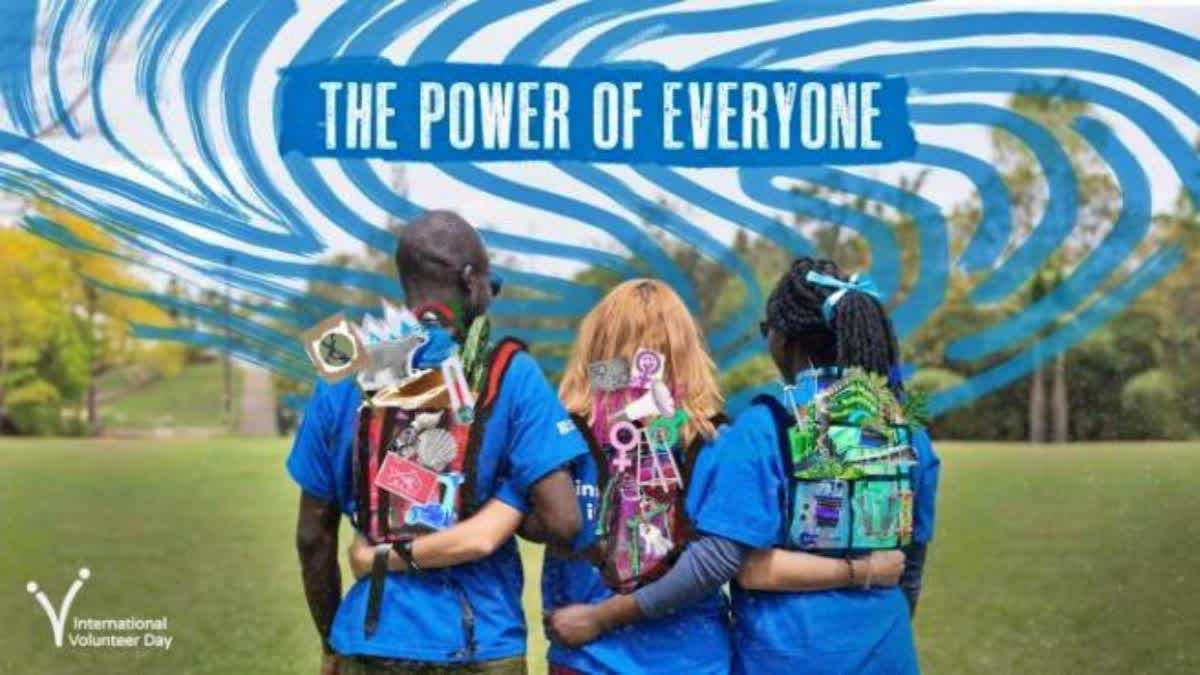Hyderabad: The United Nations (UN) commemorates the International Volunteer Day for Economic and Social Development, commonly referred to as International Volunteer Day (IVD), on December 5. The day provides an opportunity for volunteers to collaborate on initiatives and campaigns that highlight their contributions to social and economic development on a local, national, and worldwide scale.
Diverse volunteers, stronger communities:
It is simply not possible to achieve the Sustainable Development Goals (SDGs) without including people at all stages, at all levels, and at all times. Volunteering makes people part of the solutions. Volunteerism lets people and communities participate in their development.
The challenges we face—climate change, conflicts, and social injustices can feel overwhelming. Yet, in these trying moments, the spirit of volunteerism shines brighter than ever. In every corner of the world, volunteers are usually the first to respond. They rise to meet challenges with courage, dedication, and selflessness.
Volunteers create a richer culture of service within their communities. They help bridge the gap between generations and support sustainable development. Volunteering allows us to work together across generations to achieve the SDGs. Volunteering is an intergenerational cycle.
History:
- 1985: The United Nations General Assembly invited governments to observe the International Volunteer Day for Economic and Social Development on December 5 annually (resolution 40/212 of December 17, 1985) and urged them to raise awareness of volunteer service so more people in all walks of life offer their services as volunteers, both at home and abroad.
- 1997: The General Assembly, in its resolution 52/17 of November 20, 1997, proclaimed 2001 as the International Year of Volunteers (IYV) to further recognise volunteers, facilitate their work, create a communication network and promote the benefits of voluntary service.
- 2001: The General Assembly adopted a set of recommendations on ways in which governments and the United Nations system could support volunteering and asked that they be given wide dissemination (resolution 56/38 of December 5, 2001).
- 2002: The General Assembly, in its resolution 57/106 of November 22, 2002, called upon the United Nations Volunteers (UNV) programme to ensure that the potential of International Volunteer Day is fully realised.
- 2008: The General Assembly decided on December 18, 2008 that on or around December 5, 2011, two plenary meetings of the sixty-sixth session of the General Assembly should be devoted to the follow-up to the International Year of Volunteers and the commemoration of its tenth anniversary (resolution 63/153).
According to UNDP, in 2024, over 13,000 on-site UN Volunteers have served with over 70 UN entities and missions as part of the UN Volunteers programme, which is proudly hosted by the United Nations Development Programme.
This year has also seen a record number of 10,000 online volunteers, ranging from the ages of 18 to 88.
Hailing from some 180 countries, UN Volunteers bring with them unique perspectives, experiences, and skills that enrich our collective efforts.
As the UN Secretary-General has highlighted, volunteers from diverse backgrounds must be able to play an even greater role in driving progress on the Sustainable Development Goals at the country- and community-levels.
Famous Volunteers:
Ben Franklin- In addition to being one of the founding fathers of the United States and the inventor of bifocals, did you know that he also founded the first volunteer fire department. Franklin's well-known adage, "an ounce of prevention is worth a pound of cure," is probably familiar to you. In 1736, Franklin organised a team of 30 men to establish the Union Fire Company in an effort to stop large-scale fires in Philadelphia.
Christopher Reeve- The late actor became an advocate for people with spinal cord injuries after an accident left him paralysed. Reeve served as Vice Chairman of the National Organisation on Disability and as Chairman of the American Paralysis Association. In addition, he established the Christopher and Dana Reeve Foundation and co-founded the Reeve-Irvine Research Center. Through grants, advocacy, and a paralysis resource center, the Foundation works to improve the quality of life for individuals with disabilities and supports research that leads to cures and treatments for paralysis brought on by spinal cord injuries.
Agatha Christie- When her husband Archie was serving in World War I, renowned author Agatha Christie joined the Red Cross Hospital in Torquay as a nurse in the Voluntary Aid Detachment. She served as a volunteer nurse from 1914 to 1917 before spending an additional year dispensing hospital medications.
Ella Fitzgerald- The "First Lady of Song" is best known for her scat and jazz vocals. In 1958, she performed on a public service announcement for the March of Dimes to raise awareness of the need to combat polio.
Sally Ride- Numerous young girls looked up to America's first female astronaut, who was also the youngest at the time. She was a big fan of the Girl Scouts as well. She was a co-founder of the Girl Scouts' Camp CEO, which matched professional women with minority girls. Additionally, she established Sally Ride Science, her own organisation.
Read more



